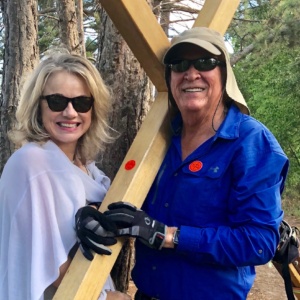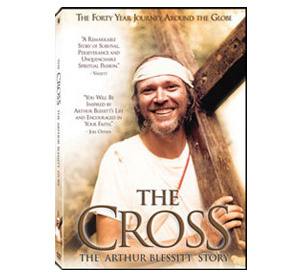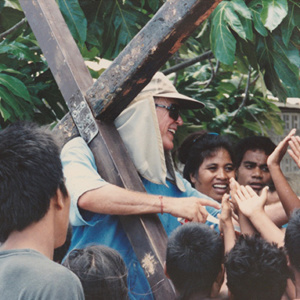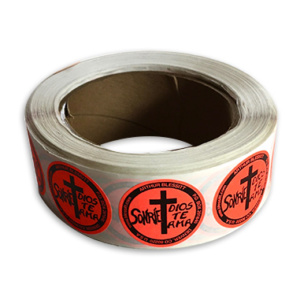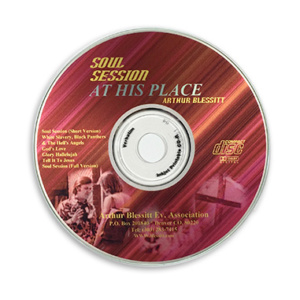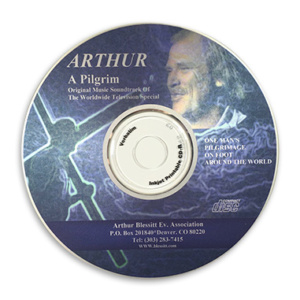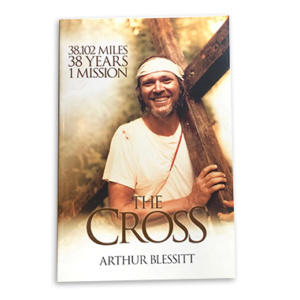THE MAKING OF AN EVANGELIST
GREENVILLE, MISSISSIPPI, where I was born on October 27, 1940, was the hub of the Delta, populated by some thirty thousand souls. The farmers in Big Mac overalls hauled their long-staple cotton into town and sold it for about two hundred dollars a bale. Then they loaded their wagons and old Fords with groceries and went down to stare at and lovingly touch the gleaming, efficient farm machinery that was beginning to revolutionize the land.
Greenville was part of that all-but-vanished Deep South that still voted Democratic and listened to and believed the flowery Fourth of July oratory of gallus-snapping politicians who harangued at election time in front of the courthouse.
Mary Virginia Campbell Blessitt, my mother, saw to it that I attended Sunday school at the Methodist church. Unfortunately, I had a habit of causing all sorts of mischief, the least of which was turning up with frogs in my pocket. Finally the exasperated teacher got to the point where she let me take charge of the class just to keep me out of trouble. I made up stories about un-Christian monsters and moonmen, but, under her watchful, accusing eye, I put a happy ending on the tall tales. The monsters and moonmen always ended up saved.
The most exciting day of my life came when Mom and I went down to the station to greet my dad, home at last from the war. Captain Arthur O. N. Blessitt, wearing a chestful of medals and a big smile, scooped us all into his long, powerful arms. Dad hadn’t seen me since I was six months old. He was only 135 pounds but extremely well muscled and deceptively strong for a man who stood a mere five feet four. But to me, he looked ten feet tall in his beribboned uniform. We headed for home happily, a whole family again.
But our happiness was short-lived. Dad was one of those men who came back from the war seared by the fighting and butchery he’d seen in the Pacific and the Aleutians. For him, it had been a hard, nearly fatal war. He came eyelash-close to death on at least two occasions.
He and eighteen buddies were assigned to scout an atoll, but the mission turned into a disaster. All but Dad and one other man were killed in a Japanese ambush. They were spirited off the rock in the nick of time by submarine. Dad’s second escape came over the Aleutians when a plane in which he was flying was shot down. Every one of the nine other men aboard was killed. Dad’s injuries kept him in the hospital for four months. Only through the Red Cross did we learn he was alive.
I was too young to measure the intensity with which he wanted to forget the war. After a heated argument in school one day about whose father had been the biggest hero in the fighting, I rushed home to Dad and said, “How many people did you kill?” He looked hurt and he answered softly, “Son, I went through a lot and I’m not proud of it. I had to do it, but I’m not going to boast about taking the lives of others, even if they were enemy soldiers.”
It was impossible for Dad to forget the war. He turned short-tempered, unable to excise all the horrible memories. A church-loving Baptist who had once felt but ignored God’s call to preach, he was now a man in search. But he was searching in the wrong place —at the bottom of a bottle.
I recall several trips to town during which Dad would tell me to wait while he went into a bar. On one occasion, after two hours of lingering in the sun, I got thirsty and walked inside, hoping I could get a Coke. I arrived at precisely the moment when Dad was squaring off against seven men, several of them with knives in their hands.
“Son, get the lug wrench.”
I ran out to our truck and hurried back with two wrenches, though I didn’t think the extra would do much to even the 7 to 1 odds.
But I had never seen my dad really angry. Neither, apparently, had the men confronting him. Dad’s eyes and manner were savage, and I’m certain he could have reduced the pack of them to a screaming, bloody pulp if they had moved in on him. But it never came to that; after muttering threats and curses, the men lost their nerve and backed off. I never did find out what started that argument.
Shortly after this incident, we were in town again when a towering, bull-shaped man accosted Dad and without preface accused him of being a tinhorn hero.
“You and all your medals, you don’t look that tough to me.”
Dad was ready to kill him, but caught his temper and walked away. When we got home, he threw every one of his medals into the trash.
During his tough period of readjustment, Dad had the added burden of not being able to find a decent job. Finally, he gathered us together and said he was going to New Orleans to look for work. It was a body blow, the family being rent asunder so soon again.
But he did find a job on the docks and then a better one at a steel mill. We moved to New Orleans and joined him. Dad was earning good money, but he was still drinking, still restless and for the most part uncommunicative.
“It’s too hard to save, and I don’t like the city,” he announced one day. “Anyway, kids should be raised in the country.”
We moved to a small farm near Oak Grove, Louisiana. If Dad wanted to be as far from civilization as possible, he succeeded. The nearest gravel road to our place was ten miles away, reached only by a dirt trail under an arch of low-hanging moss trees, which I was certain hid panthers and cottonmouths.
Though we were living in perhaps the most remote backwoods refuge of the sixteen-hundred- member community, we weren’t entirely cut off from contact with the outside world. There were several shopping excursions a month to town and an occasional gossipy neighbor would find his way to our door “to set and jaw a spell.” But our major tie to Oak Grove came via the bumpy Sunday morning rides to church, the Blessitt’s, of course, decked out in their best finery.
One Sunday our pastor, Brother Dewey Mercer, announced that a brush-arbor revival was going to break out the following week. An evangelist from Texas would be the preacher.
Something in me stirred. I was only seven, but I knew I was a sinner. “For all have sinned,” I remembered from Romans 5:12. I also knew I was in rebellion against God, however slight my boyish transgressions might have been. (“Know ye not that a little leaven leaveneth the whole lump?” it said in 1 Corinthians 5:6). And in the eyes of God sin wasn’t measured in degrees. According to John 8:34, “Whosoever committeth sin is the servant of sin.”
My mother set me an inspiring example. Always fervent in her belief, she had been saved in the Methodist church. I wanted the ecstasy of the Lord, too. I also felt guilty about cursing, lying to my parents, and not taking Sunday school seriously.
We arrived for the first night of the revival to find a makeshift church: The old Baptist building had been torn down and was in the process of being rebuilt. We found seats on the right- hand side of the parking lot where the service was going to be held. Sawdust covered the dirt, and the pulpit and piano had been moved out from the church. We sat under a roof of boards, tree limbs and brush held in place by a dozen slim poles, each topped by a naked light bulb, flashpoints of glare that looked like giant fireflies. I was certain the Lord didn’t mind that His word was going to be preached from a parking lot.
And preached it was, fast, furious, forceful, ending with a call from the evangelist for sinners to step to the pulpit and be saved.
I started to get out of my seat and go forward, but my mother caught me by the shirt.
“You’re cutting up, son,” she said.
She wouldn’t let me go. And I couldn’t blame her. I had wiggled all through the service, but it was the wiggling of impatience and excitement rather than boredom or inattention. No one had ever been more anxious to get up and be counted for Christ, but I couldn’t convince my mother.
“Hush,” she ordered.
The service over, I looked with envy at the two dozen or so who had given themselves to Christ.
On the ride home I asked Mom, “Why wouldn’t you let me go up to the front with the others?”
“Why did you want to go?”
“I wanted to be saved!”
“We’ll be back tomorrow night, and the same fellow will be preaching.”
“But I want to be saved tonight!”
Dad, who’d been unresponsive up to now, suddenly screeched our truck to a halt in the middle of the road. He shifted into reverse, backed up and wheeled toward the brush arbor. I knew that ribbon of road was leading me straight to Christ. It was too dark to see the expression on Dad’s face and he didn’t say a word as the mules flicked by, but he had felt my need!
Dad, I couldn’t quite bring myself to say out loud, I love you.
Brother Mercer and the evangelist were still in the parking lot, several people gathered around them. Dad and I hopped out of the truck. I waited while he marched up to the two preachers and began talking to them. Then Brother Mercer and the evangelist came over to me.
“All you have to do, son, is ask Jesus into your heart,” the evangelist said. “Accept him as your Savior and know that He died on the cross for you. Then you can be saved, right here, right at this moment.”
“I’m ready.”
We fell to the ground and I repeated each line of the brief prayer offered by the evangelist.
“Dear God, I know I’m a sinner.”
“Dear God, I know I’m a sinner.”
“I ask Jesus to come into my heart’¦”
“I ask Jesus to come into my heart’¦”
“And live in my life forever.”
“And live in my life forever.”
“Make my home Heaven.”
“Make my home Heaven.”
“Thank you, Jesus.”
“Thank you, Jesus.”
A knot of people had formed around us during the prayer, and when I rose from my knees everyone was smiling and silent except for one man who said loud enough for me to hear, “I don’t believe that little fellow is saved and I don’t think he knows what he’s doing.”
I didn’t trouble to answer, to say that I knew exactly what I was doing, that in the eyes of God I was now as saved as anyone. I was right with the Lord, and too happy to argue the point.
That moment of coming to Christ, my bridge to Heaven and eternal life, didn’t cause me to shout, clap my hands, or dance in the air; it was a private feeling of quiet contentment.
I don’t remember the ride home, or if Dad or Mom said a word. I do remember that truck was as a golden chariot pulled by a band of angels.
Sin washed away, paradise gained, I went to sleep knowing that now Jesus was my best friend and that He always would be.
And He always has been.
My last thought as I closed my eyes was that I wanted to win others for Him.
Soon afterward, Mom and I were all baptized. But Dad still wasn’t right with the Lord. He was drinking hard as ever. He wouldn’t let me get too close to his innermost thoughts, but there were moments when we would talk and I’d implore him to give his life to Christ.
“There’ll come a time when I’ll be ready,” he predicted. “Right now I can’t seem to find the strength.”
It took four frightening, bewildering incidents over the next several years for Dad to “Find the strength.”
At the general store one day, a barrel-chested, unshaven man walked in. I had never seen him before, and I watched with horror as he swept to the hardware counter, picked up a double-edged ax and headed straight for Dad, intent on slicing him down the middle.
“Look out!” I hollered.
Dad whirled in time to block the arc of the descending blow. He wrestled the ax away from the man, and using the handle like a battering ram, he shoved his attacker to the floor. The tables had been quickly reversed, and Dad could have claimed, successfully, self-defense in any court in the land had he turned the ax on the man.
Cowed though he was, the man threatened, “I’m gonna kill you.”
“Why?” Dad asked quietly, “I don’t even know you.”
“I’m gonna kill you just the same.”
He got up and headed for Dad with bare knuckles. Dad threw the ax aside and swung at him’”two powerful, jaw-breaking punches. The man tumbled to the floor in a heap.
The sheriff, summoned by the store clerk, finally arrived. He misjudged the situation and he misjudged Dad. Taking out his handcuffs, he asked Dad to extend his wrists.
Dad said, “I’m not really mad yet. I’ll go along with you, but not in handcuffs. If you give me any trouble, I’ll take your gun away from you so fast you won’t know what’s happening.”
Chastised, the sheriff put the handcuffs away. When Dad finally got a chance to explain what had happened, he was released from custody.
We never discovered the stranger’s motive for wanting to kill Dad.
On another occasion, Dad, two friends, and I were hunting quail. We stumbled on a covey almost at our feet, and the birds took off with a furious beating of wings. We all emptied our five-round shotguns at the fleeing quail, but only fifteen shots were fired. I turned and looked at Dad. He was lying on the ground, his face in the dirt, his gun unfired. He couldn’t bring himself to kill so much as a bird. The war had completely expunged his instinct for killing anything or anyone.
One night Dad came home late, the odor of whiskey strong around him. He walked to his gun rack, grabbed his rifle, and strode out of the house. I was awakened by the sound of a shot. The terrible thought crossed my mind that Dad had become so mired in despair that he had committed suicide. But we found him sitting on the front porch, the rifle resting between his legs. He never said why he had sent the shot up.
After that none of us ever went to bed with an easy thought, and mom didn’t close her eyes until Dad arrived home and settled in for the night. Frequently, when he came home, he was drunk.
The three of us prayed continually for him, offering our supplications to the Lord to strengthen and lead him.
Our prayers remained unanswered until, driving alone one night, his car weaving dangerously, Dad was arrested for drunken driving.
He pleaded guilty and was fined four hundred dollars, all the money his farm had earned in a year.
“Son,” he said when we got home from court, “get the Bible out.”
I handed it to him. He placed it on the couch, went to his knees, and calling on God for deliverance from his sins.
Facing us without shame, he confessed, “I’ve failed you all. And I want to ask your forgiveness. I’ve tried to stop drinking, but couldn’t, until now. Tonight I’m giving my whole life to Jesus Christ and I’m asking God to make me a new man with a new heart. I’m going to need your help, but mostly I’m going to need the help of God.
“From now on, we’re going to have Bible study and prayer in this house every night.”
I felt indescribably uplifted, free in a way I never was before. Dad’s been good as his word. Since that day he’s never touched another drop of liquor. His belief in God has been the sustaining force of his life, particularly since he contracted emphysema several years ago. He’s an invalid now, and my mother spends most of her time nursing him. But, despite his illness, Dad finds the God-inspired power to face the world day by day, even in those terrifying moments when he gasps for air.
Dad’s commitment to Christ came when I was thirteen, and in the six years since I’d been led to the Lord my own commitment had never wavered. It grew with each day, and I became a modest soul winner, bringing one person, mostly young friends and field hands, to the Lord for each of my thirteen years.
I was fully conscious of the difference between good and evil and that each man’s soul is a battlefield in which God and the Devil contend for supremacy. So every chance I got, wherever I was, I witnessed for Christ, leading more to Him every week until I was fifteen years old.
Then came a crisis. On a Tuesday night in August 1955, as the moon shimmered outside my window, I felt uneasy and began praying for serenity. But it wouldn’t come. God seemed to be dealing with me in a way I couldn’t decipher. I prayed harder, perhaps in God’s view I wasn’t really saved. I asked Jesus to come into my heart again, forgive me for my sins and be my Savior once more.
Then he told me to rest and be at peace with myself, and He gave me direction, a focus and a mission for my life. He was calling me to preach.
The idea of becoming a preacher had been on my mind since the night I was saved. I’d hide in the fields and dream that I was preaching before an enormous crowd at the sugar Bowl in New Orleans, that I was an evangelist with the power to proselytize millions throughout the world.
But cold reality was another matter. I felt timid, doubtful, unsure of the call I had heard.
I brought my doubts to Mom.
“I think the Lord’s calling me to preach,” I said. “What should I do about it?”
“Wait for Him to give you the determination and the power.”
I knew one thing for certain. If I did surrender to spread the gospel, I didn’t want to be like most of the other preachers I’d heard. They didn’t seem consumed by God, nor did they preach with the conviction of the apostles.
The next day I met with the Lord again in prayer. The call this time was sweet and clear and loud and long and unmistakable.
The mighty injunction from Luke 9:60 rang out commandingly: “Go thou and preach the kingdom of God.”
An unbelievable peace came into my soul.
I’d always been close to my mother’s dad, Robert Campbell, and when I told him I was going to become a preacher, he took me on a ride through the fields near his farm.
“Grandson, when I was a young man, God called me to preach, too. But I didn’t have the dedication and the love. I’ll tell you a secret, never mentioned it to another soul. All these years I’ve preached to the cotton stalks, the corn, and the trees, but never to people. Your granddad failed God. I’m going to be dead soon, but I want to ask the Lord to keep you inspired.”
He stopped the car, laid his hand on my head, looked upward and said, “Dear God, give him the strength to do what I never had the nerve to do. Let him work among the needy in mind, body and soul for the rest of his days.”
Granddad’s prayer has always stayed with me, and it strengthened both of us.
I was in college when word came that Granddad was dying. He had asked to see me. When I arrived at the hospital, the doctor told me Granddad hadn’t said a word to anyone in days and that he was so weak he might slip away at any moment.
I walked into the room and whispered in his ear, “Granddad, it’s Arthur. I’m here.”
There was life and courage in him still. He looked at me and smiled. “My preacher,” he said. Then he sat up in bed and put his arms around my neck.
We talked for a few moments, and his last words to me were, “Remember, my prayers are with you.”
He died a few hours later.
Members of the family told me that after I left he said the Lord’s Prayer twice. Then he sang the hymn that has warmed Christian hearts for two hundred years. The first thing I’m going to do when I meet Granddad in Heaven is sing that hymn with him. The harmony might be off- key, but I don’t think anybody will mind.
Amazing grace! How sweet the sound
That saved a wretch like me!
I once was lost, but now am found,
Was blind, but now I see.
Granddad’s voice had broken as he struggled through the last verse:
Yea, when this flesh and heart shall fail.
And mortal life shall cease,
I shall possess, within the veil,
A life of joy and peace.
He made it to the end. Seconds later he went to spend his first ten thousand years with the Lord.


